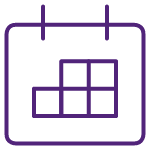 Advanced Feed Milling training
Advanced Feed Milling training

Online program

Self-paced learning

Flexible start dates

Designed with industry
Gain diverse skills and knowledge of the Australian stock feed industry with our Advanced Feed Milling training program.
Offered jointly by UQ Skills and the Stock Feed Manufacturing Council of Australia, this non-accredited training program is for applicants working as feed mill operators or supervisors.
You will cover a range of topics, including:
- mill safety and quality assurance
- ingredient handling and storage
- milling techniques
- production and processing
How you'll learn
This program comprises 6 online training modules – you can enrol in the full program or choose specific modules that are relevant to your learning needs.
Assessement
You will be assessed through a variety of methods, including written case studies, project-based assessment, and written exams.
Start date
You can start this online program any time.
This program has no formal entry requirements, but you must be employed in the stock feed milling industry.
All UQ Skills programs require access to a computer with a Windows operating system, up-to-date versions of Microsoft Office and Adobe Acrobat Reader, and a reliable internet connection.
Resources
2026 UQ Skills Student Handbook (PDF, 1.4 MB) (includes student support and guidance on fees, withdrawal and other policy information).
Fees vary for each module.
| Module | Members* | Non-members |
|---|---|---|
| Modules 1 to 6 | $3,110 | $3,420 |
| Module 1: Introduction to stock feed milling | $575 | $630 |
| Module 2: Ingredient receival, handling and storage | $460 | $510 |
| Module 3: Particle size reduction | $460 | $510 |
| Module 4: Weighing, batching and mixing | $460 | $510 |
| Module 5: Pelleting | $1,265 | $1,390 |
| Module 6: Finished feed handling, storage and delivery | $230 | $250 |
Note: prices listed above do not include GST.
*Price for members of the Stock Feed Manufacturing Council of Australia.
All training, including assessments, is delivered online and you can advance through the modules at your own pace. Fees vary for each module.
| Module 1: Introduction to stock feed milling |
|---|
| Introduction to Australian stock feed milling |
| Mill layout and design |
| Feed quality assurance |
| Safety in feed mills |
| Computerised (automated) systems |
| Module 2: Ingredient receival, handling and storage |
| Receival |
| Handling and storing bulk ingredients |
| Handling and storing packaged materials |
| Raw material storage and environmental control |
| Module 3: Particle size reduction |
| Introduction – grinding and why we do it |
| Hammer milling |
| Roller milling |
| Other techniques in particle size reduction |
| Module 4: Weighing, batching and mixing |
| Production scheduling and the batching process |
| Weighing and batching |
| Mixing |
| Hand tipped ingredients and pre-mixes |
| Module 5: Pelleting |
| What is pelleting? Why do we pellet animal feeds? |
| Pelleting system overview |
| The theory of pelleting 1: Introduction |
| The theory of pelleting 2: Construction, function and operation of pellet press |
| Steam and conditioning |
| Pellet quality |
| Pelleting system operation |
| Post-pelleting processing |
| Ration composition and pellet quality |
| Advances and alternatives in pelleting equipment |
| Module 6: Finished feed handling, storage and delivery |
| Quality assurance procedures for finished feeds |
| Finished feed dispatch and delivery |

Do you have questions?
Check our frequently asked questions to find answers about UQ Skills.
Disclaimer
Details are correct at the time of upload and are subject to change. UQ Skills reserves the right to change programs, subjects or costs or to cancel a program based on consideration of student numbers and resource allocation. Ensure that you understand the program, subjects, associated costs and fee liability prior to signing an enrolment form.


